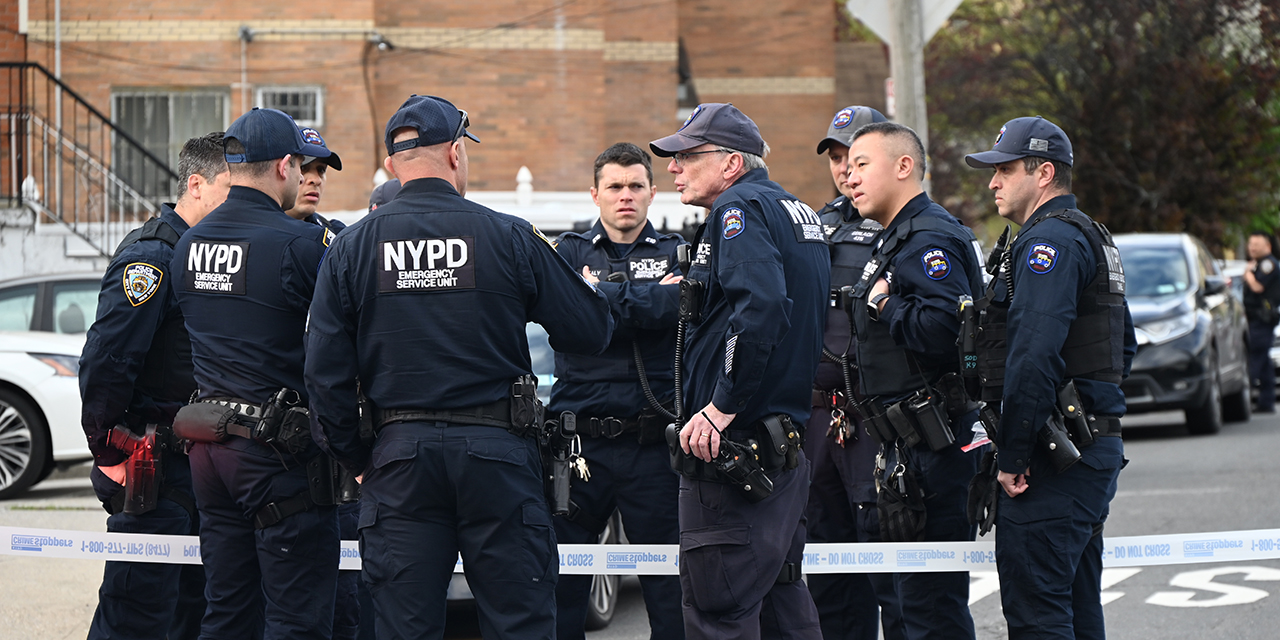Over the past few weeks, several top progressive commentators have completely reversed their views on “defunding police” and adopted a more tough-on-crime approach. Most notably, Cenk Uygur and Ana Kasparian—key figures of the premier progressive outlet The Young Turks—have awakened to the grim consequences of the policies they initially supported.
Uygur recently posted a viral tweet lambasting the “defund the police” movement as “wildly counterproductive framing” and asking progressives when they will “admit they were wrong?” These statements contrast starkly with Uygur’s tweets during the nationwide George Floyd protests: “I’m done. I’m now supporting #DefundThePolice 100%. I already agreed with the substance of the argument & now I’m down for the framing, too.”
The irony of Uygur’s recent statement is that he fails to answer the very question he poses to the Left: he has not acknowledged that he was wrong. In fact, prominent liberal commentators on platforms from The Young Turks to CNN helped popularize the movement that led to massive cuts to police department budgets in 2020. Major cities such as New York City, Los Angeles, Seattle, Austin, and San Francisco slashed funding for their departments amid an unprecedented rise in officer retirements and low officer morale. The financial, cultural, legal, and psychological ramifications of the Black Lives Matter-fueled defund-police movement correlated with record-breaking 30 percent rise in homicides in 2020, followed by another 6 percent rise last year.
Meantime, Uygur’s fellow Young Turks commentator Ana Kasparian has generated a progressive social media backlash for criticizing soft-on-crime prosecution in California. In a clip that went viral on Twitter, Kasparian decries the events leading up to 20-year-old Carlos Delcid’s alleged killing of an off-duty Monterey Park police officer last month. Before the shooting, Delcid had been sentenced to 180 days in prison, but L.A. district attorney George Gascón dropped three of the five felony charges (including witness intimidation, false imprisonment, and assault with a deadly weapon), resulting in his release the next day.
Kasparian’s tough-on-crime rhetoric sounds virtually indistinguishable from that of a conservative commentator such as Ben Shapiro. But in truth, there’s nothing “progressive” about soft-on-crime policies in the first place. Serving and uplifting the less fortunate includes helping victims of violent crime as much as it does granting other kinds of public assistance to the poor. The truths that Kasparian and Uygur are now awakening to have been obvious outside of progressive circles for years.
In a number of cities, lenient criminal-justice policies have had devastating consequences. In Chicago, more than 75 percent of the 2,600 defendants monitored via the home-confinement program (a major plank in the decarceration movement’s platform) have been charged with a violent offense, including “about 100 people on home monitoring who are charged with murder.” This program has resulted in multiple preventable violent crimes, leading to Mayor Lori Lightfoot’s public condemnation of the policy earlier this year: “Do you feel safer knowing these numbers? They’re right back on the street walking big as day as if there is zero accountability. That’s what’s contributing to the level of brazenness that we’re seeing on our street.”
Yet Lightfoot’s seeming epiphany differs dramatically from her outspoken position in 2020, when she called for “bold” measures to reform policing and cut $80 million from the Chicago police budget. Blinded by the fervor of the George Floyd protests, many progressives capitalized on what they saw as an opportunity to reform society and instantiate the equitable policy measures of their dreams. But “defund the police” was never a liberal view; it was a far-left view that appeared more popular than it really was because of leftist bias in the mainstream media.
At last, some progressives are waking up from this bad dream and beginning to condemn ruinous policy measures that have hurt society’s vulnerable the most.
Photo by Kevin Winter/Getty Images for dick clark productions





